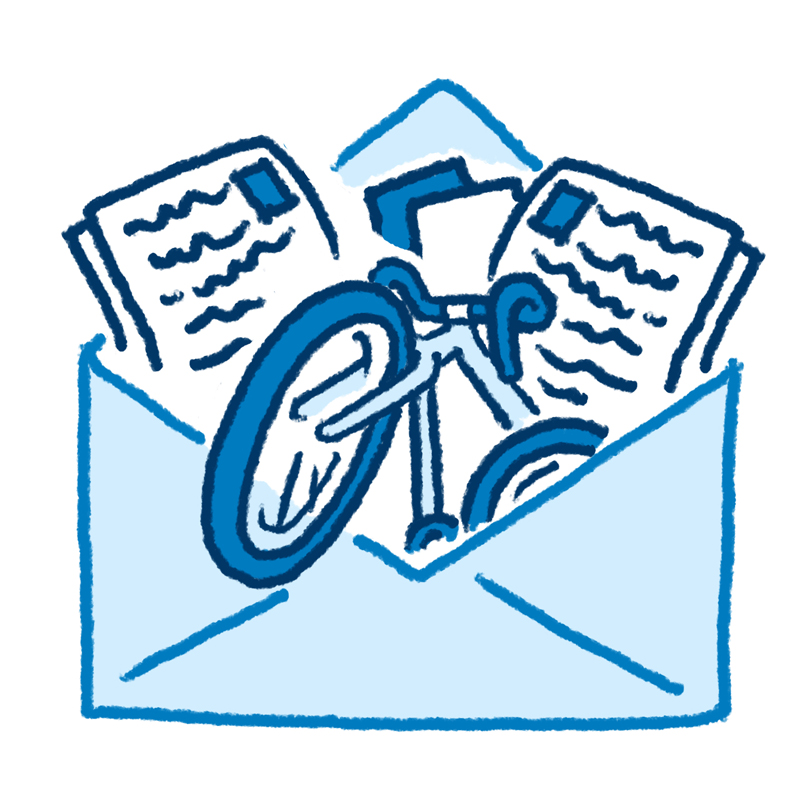Love and Light
This article first appeared in the May 2019 issue of Adventure Cyclist magazine.
Daniel White didn’t flinch at the fact that he hadn’t ridden a bike since he was a kid. In 2018, he rode Adventure Cycling’s Underground Railroad route, which follows the historic network of clandestine passages, thruways, and safe house waypoints used by African American slaves escaping to free states. It runs 2,007 miles from Mobile, Alabama, to Owen Sound, Ontario.
As White says, he has “a borderline psychotic confidence” in himself. And he was compelled to ride the Underground Railroad. As a black man who has been in the prison system, the journey was especially poignant.
“Riding through cotton fields … it’s a lot to process,” said White. “It’s an amazing and humbling experience. Even though I’ve been through a lot, I know it’s nothing like slavery, children sold away from you, dogs chasing you. Still, there is a correlation between prison and slavery. Not everyone might see it like that. But to me the system just evolved into something else.”
In New Albany, Indiana, White followed a whim and headed a couple of blocks off course. It’s a sleepy little town and a mere husk of what it once was during the city’s heyday as a shipbuilding center in the nineteenth century. Mansions and row houses from that period reside a block or two away from squat, one-story brick buildings with fading paint and cardboard in the windows.
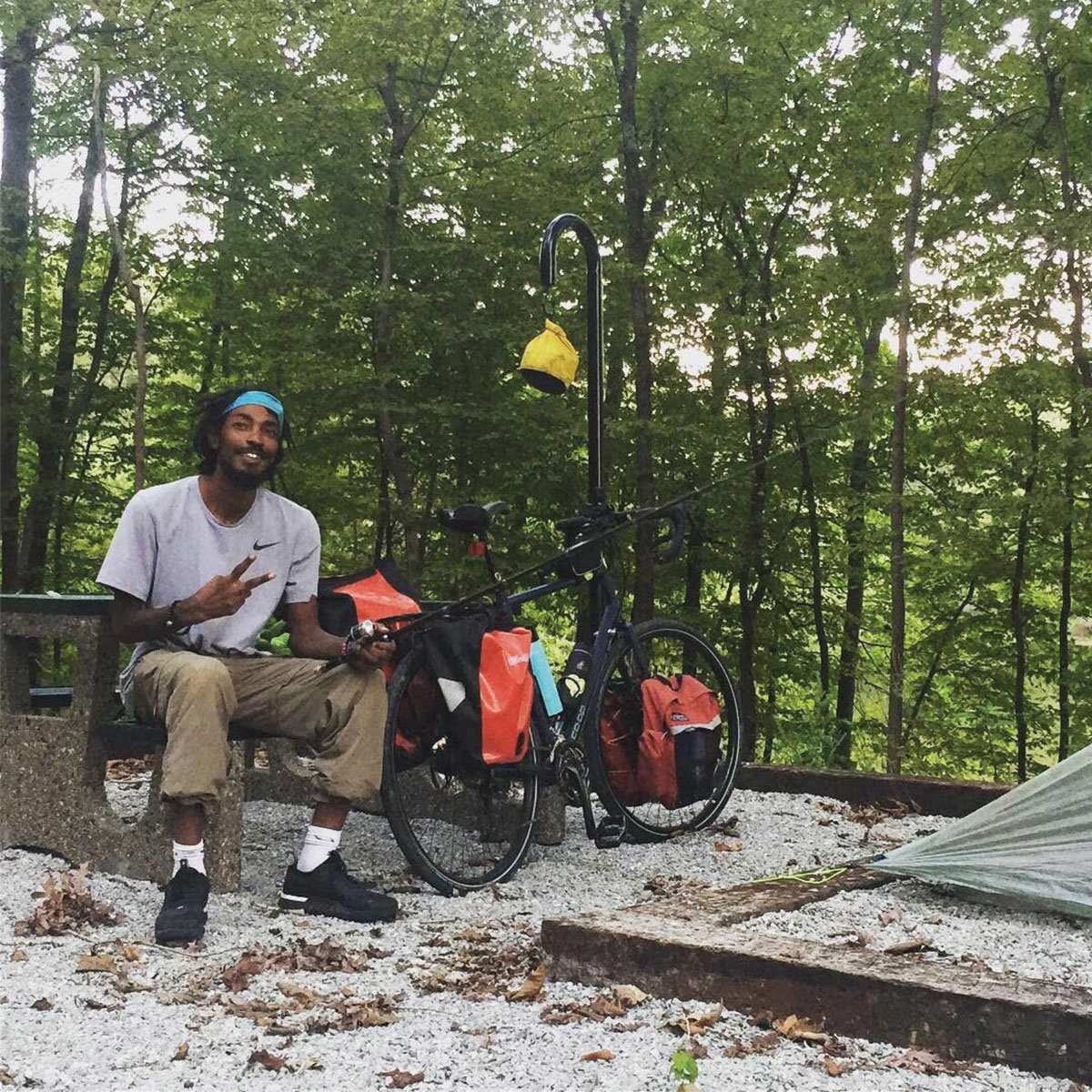
White stopped in front of Second Baptist Church, a Greek Revival–style building with shallow gables and long, stately windows. It stood out next to deserted dirt parking lots, a tired-looking mobile home supply shop, and railroad tracks. The reverend happened to be outside.
Reverend LeRoy Marshall and White struck up a conversation. White learned that the church, once called Town Clock Church, and its steeple were visible across the Ohio River in Louisville, Kentucky. It was an important connecting point on the Underground Railroad on the border of a slave and a free state. Marshall brought him through the church and down into a musty basement where the slaves hid and accessed an underground tunnel to reach the bar (formerly a Red Cross building) across the street.
“I ran my hand through the dirt of the tunnel and it was a different kind of feeling,” said 33-year-old White, recounting one of the most powerful moments of the trip.
Riding the Underground Railroad was only the second of White’s big outdoor adventures. The first was a year earlier hiking the Appalachian Trail, which spans Georgia to Maine. He started with no hiking experience, inspired by a random Facebook comment.
He shares a similar story with many newly minted long-haul outdoor adventurers. He felt ground by the grind. Working 60 hours per week as an electrician, he was exhausted. So he cut loose from his own life and headed out into the unknown.
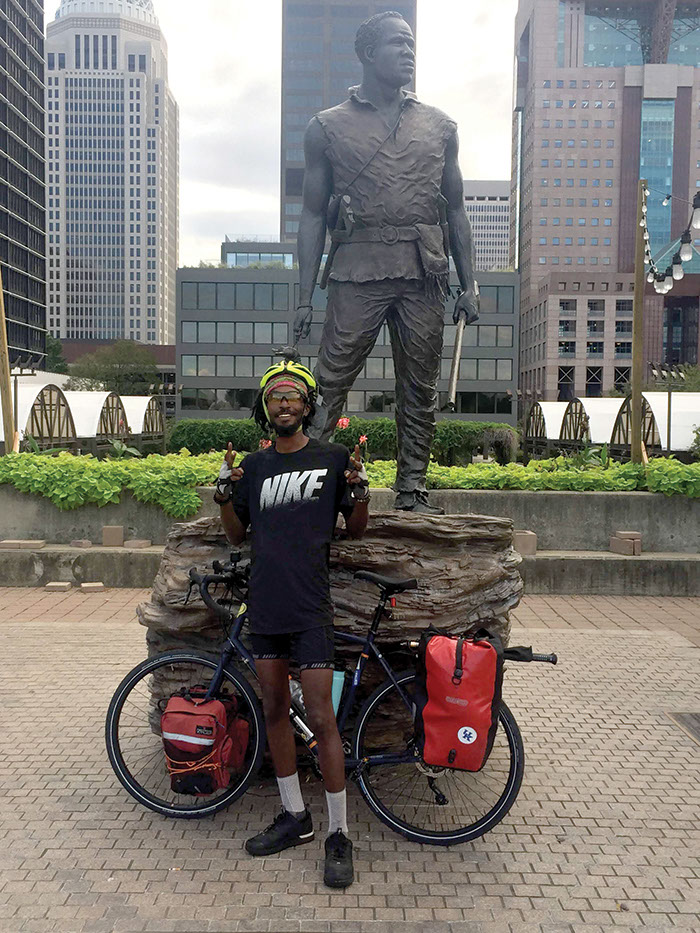
“I just needed a break,” said White. “Maybe because of the drain of social media, politics, race relations, and division in our country. I can see why things are the way they are, but it’s bad to see everyone going at each other’s neck all the time. I just needed a real break.”
Many adventure stories start with gleefully giving notice, but White’s story diverges in a number of ways. He served seven months in prison when he was 24 for breaking parole on a charge of drug possession. During the following years, he painstakingly pieced his life back together, focusing on his career as an electrician and rapping in his free time as Logo.
“Prison kills all your creativity,” said White. “You have to be mindful and alert all the time because all the stuff you see on TV really happens. On lockdown days, you can be in your cell 23 hours per day, and you feel dead to the world. I realized one wrong decision could mean the rest of your life. And I knew I wasn’t supposed to be there.”
Also, White came from a community in Asheville, North Carolina, where no one he knew did things like ride their bike across the country or hike along a mountain range, sleeping in the middle of nowhere on the ground.
“Even though she wanted to be supportive, my mom was nervous,” said White. “She had reservations about bears, snakes, and racists. My friends didn’t understand and still don’t. People didn’t believe I could do it except for my mom and brother.”
Despite everyone thinking he was crazy, he headed out on the Appalachian Trail with a too-heavy backpack and a goal to finish 600 of the 2,200 miles. Instead he finished the whole thing, wearing a svelte 30-pound pack. Along the way, he uploaded YouTube videos of his journey that went gangbusters with views, over 100,000 total at the time. To fund the last part of his trip, he started a GoFundMe campaign that was meant to raise $500 but ended with $3,530.
White was astonished by the support. He was also shocked by the lack of diversity on the trail, describing himself as the first gold-mouthed rapper to thru-hike the Appalachian trail.
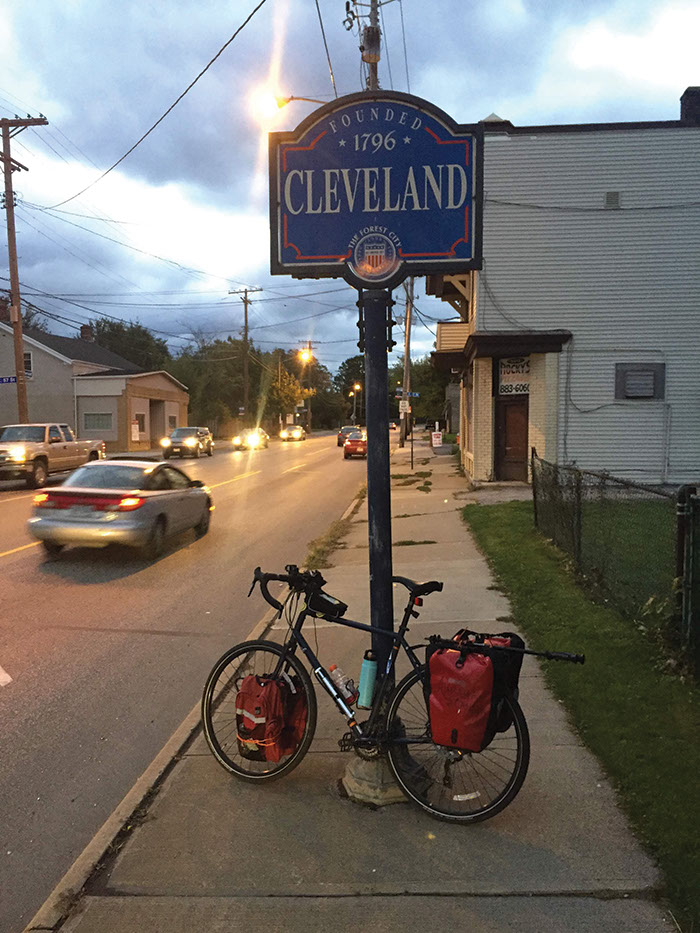
“It’s a different experience to hike and bike as a Black person,” said White. “After a while, answering ‘Why aren’t more Black people out here?’ gets annoying. No one else has to answer that kind of question. It’s like I became an unofficial ambassador. One time, a Black hiker stole from a hostel, and all along the trail I got mixed up with him. One guy who thought I was him wanted to punch me.”
Rue Mapp, the founder and CEO of Outdoor Afro, has made it her mission to inspire African American connections and leadership in nature. She suggested that question posed to White so many times is an oversimplification and not especially fair.
“There is an American legacy of Black bodies hanging from trees,” said Mapp. “Historically, the outdoors has not represented a place of relaxation and recreation for African Americans. We are trying to create a new narrative. But also, let’s look at a trip to Yosemite from Oakland. It’s a four-hour drive, requiring months-in-advance reservations during summer. It is hard for anybody, especially people without tradition, support, or know-how.”
After White finished the Appalachian Trail, he was a changed man. He knew he couldn’t go back permanently to the day-to-day rut of work being the axis of his life. So he bided his time and worked as a contract electrician to save up money to go on the Underground Railroad Bicycle Route.
But for this trip, White deftly rode the wave of his own popularity and had a little help from his friends. He ran a successful GoFundMe campaign again. REI sponsored his bike, Zpacks his tent, Liberty Bicycles in Asheville a few odds and ends, and Patagonia a puffy jacket. And he became a Mountain House freeze-dried–meal ambassador.
“I love the freedom of it, to get up and not have a destination,” said White. “And I like to kick it with the locals and see different parts of the country from a bike. It’s hard to explain to people who haven’t done it.”
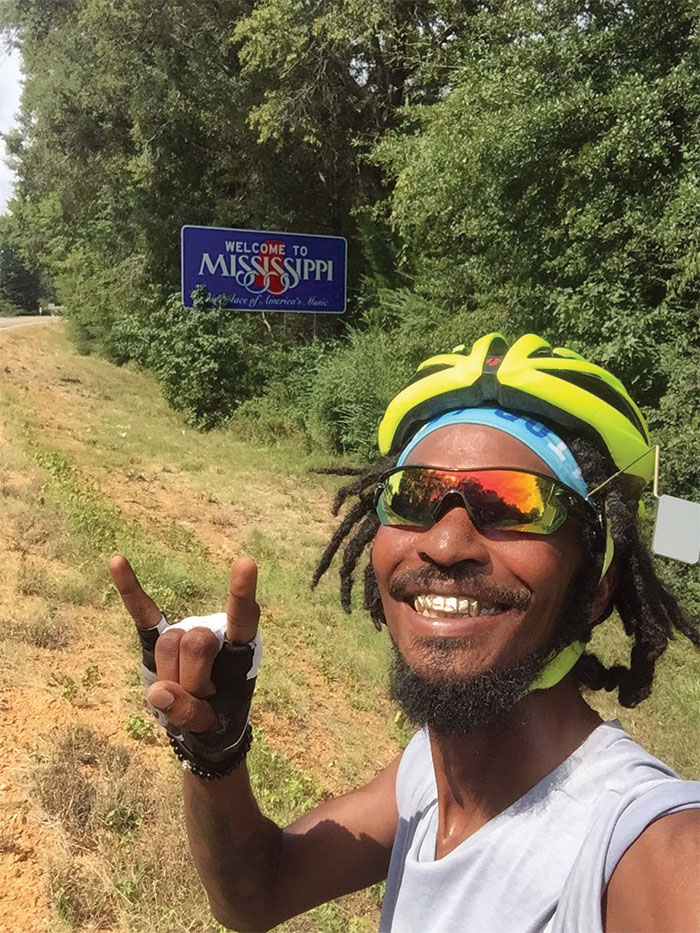
Over the course of White’s two adventures, he’s experienced the valleys and peaks of it all, so to speak. He and a white woman were camping right by the Mason-Dixon Line and at night a group of white men surrounded them in a circle not speaking. The men left and then came back with dogs. “Those aren’t dogs to be patting,” one of them said to White’s clueless hiking partner. They were forced to leave.
Another time, right outside Erie, Pennsylvania, old white guys on a fishing trip invited him over for food, and they hung the whole weekend. In Tennessee, White was riding with a bunch of folks from California. A group of young local guys chatted with the group, then brought only White a nice plate of brown-eyed beans and cornbread, something only a Southerner would appreciate.
Overall, the trail and the road have been a source of what White describes as “love and light,” and he sends it to folks at the end of his YouTube missives.
“People find freedom, healing, and connection through nature,” said Mapp. “Nature doesn’t deal in race and class. In it, we can see each other in our humanity. We can lift each other up.”


